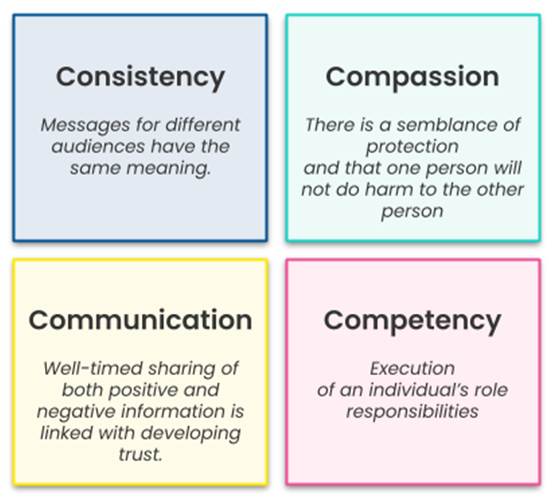July 28, 2022
Relationships are at the heart of leading and learning. As school leaders, we know this from intuition and experience. It is also clear that relationships require trust.
Research reveals that there are four elements of relational trust: consistency, compassion, competence, and communication.

Consistency is equated to predictability
Consistency is equated to predictability—in any interaction, there is a degree of vulnerability that occurs, and being predictable reduces the uncertainty of the interaction. This is often extended to concepts such as reliability or integrity which are absolutely foundational for trust to emerge.
Orienting to vision, mission, and values helps to build consistency throughout the organization. Adhering to plans helps to have a reliable way to plan and organize major strategic projects. Use of routines such as weekly Cabinet meetings is another way to create predictability. Finally, as a leader, it is critical to follow through on commitments which includes keeping appointments (or renegotiating commitments when necessary).
This planning tool will help guide the structure and content of meetings with a…


